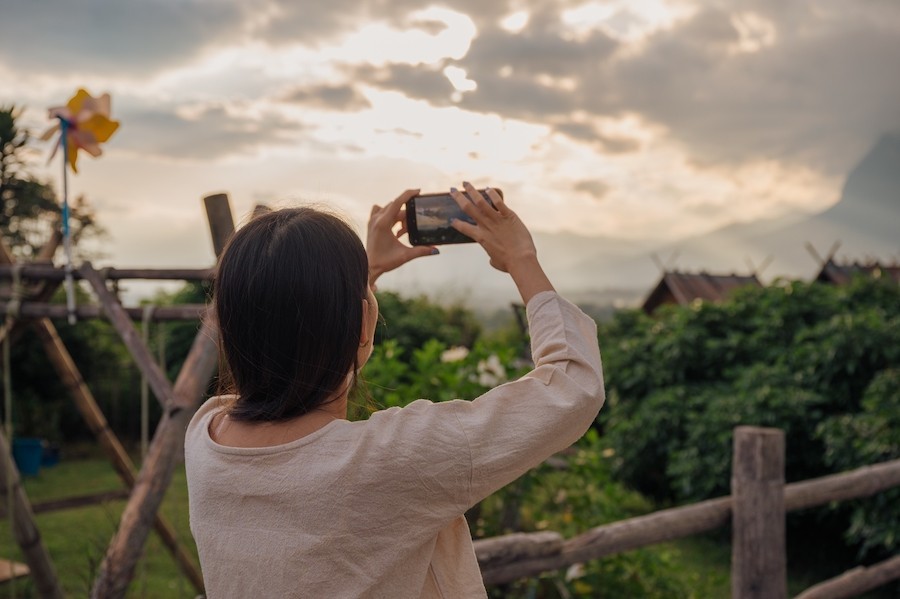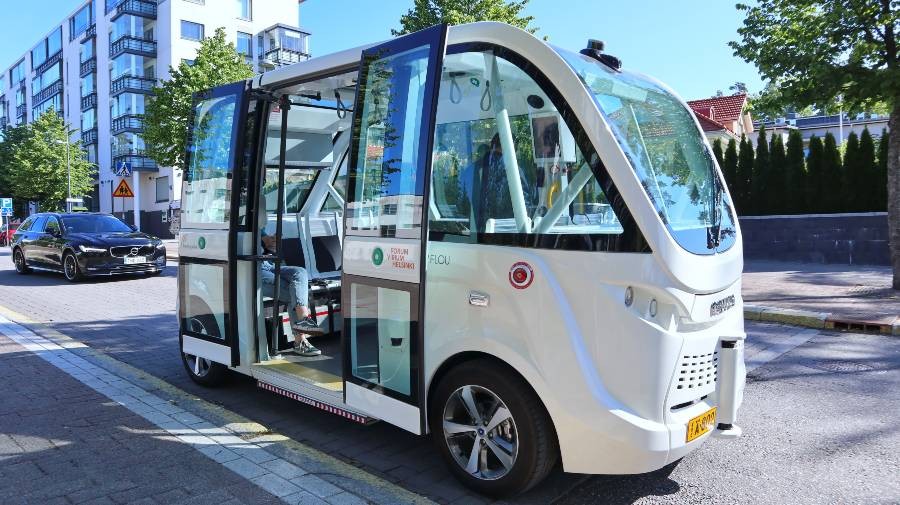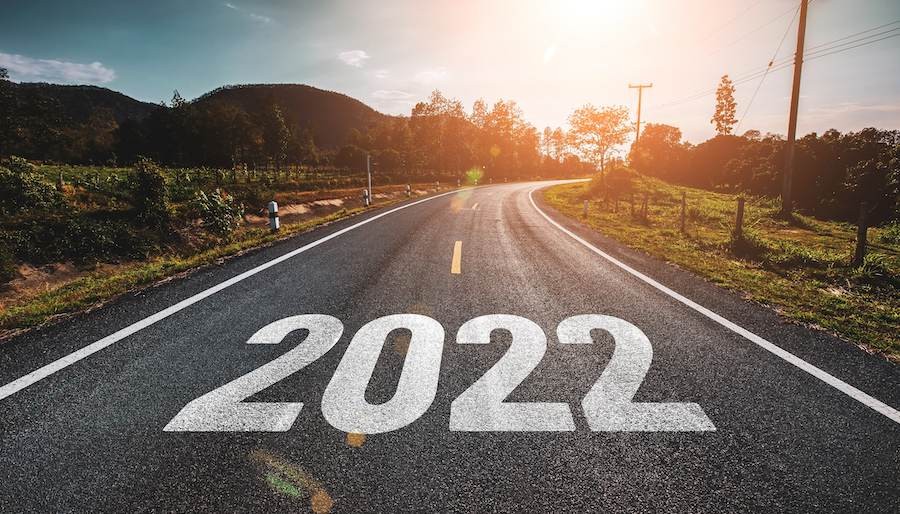If there’s anything we can anticipate with the start of a new year, it’s an ever-changing landscape of online travel marketing trends.
As a tour operator, do you need to know about all the emerging trends?
Probably not.
But can it help your tour business know which tactics to apply now and which trends to watch?
Without a doubt.
The past few years have laid bare the need for experience providers to continue adapting their digital travel marketing efforts — and quickly.
With new marketing strategies emerging each year, it can be tricky to keep up. Sure, it might be scary not to know what’s coming next, but change is inevitable. Thankfully, as experience providers, you’re poised to adapt — look at the past two years for proof — and continue to thrive.
How can I use online travel marketing
After nearly two years of virus-related impacts on the tourism industry, it’s apparent that the industry has changed. Travelers are demanding more transparency, and companies that fail to draw attention online will be left behind.
How does this affect the tourism industry, considering international tourist numbers were still down 67% in July – September 2021 (when compared to 2019)?
With people spending more time than ever on their mobile devices, online booking will continue to trend upward as people continue buying online. If you still haven’t set up an online booking system, it may be more challenging to book without the advantage and convenience travelers have grown to expect when researching trips and booking online.
So, should operators continue to push digital travel marketing despite lower numbers?
Absolutely.
And here’s why; more people than ever are keeping tabs on their phones to explore travel companies and research their next trip. As a result, virtual experiences and contactless travel are taking centre stage.
Latest digital marketing tourism trends
1. Virtual Experiences

Despite 2021 leading to continued closures or limited running time, at least the past year offered a glimpse of how a tiered recovery might look. And some of these recoveries account for the inability to travel to popular destinations physically. Enter virtual experiences.
Virtual tours are now supported by a wealth of applications, including Amazon Explore, Airbnb Experiences, Youtube and TikTok. And, short-form video content is a major draw for travelers.
How the metaverse might impact travel
The Metaverse is a version of a reality where you can connect with people in a digital world. With the announcement of Facebook’s Metaverse in 2021, it’s clear that digital experiences are on the horizon.
And while Facebook Metaverse might not impact tour operators in the immediate future, it’s a good idea to incorporate virtual elements along with in-person experiences, even if only to get eyes on your brand. WHY?
And since Facebook’s set to transform reality by merging the Metaverse with real life, it’s worth investing a bit of energy into how this might impact travel brands in the year and years to come.
And as more guests choose to book online, a web presence means you’re better positioned to attract buyers who also follow through. This is where having a tourism marketing strategy can benefit your tour business.
Why virtual tourism is growing in demand
- Offers guests a multi-sensory experience
- Allows travelers to explore a destination on their own schedule
- Includes people who are unable to travel
- Creates memorable brand experiences
- Reduces the impact of in-person tourism in vulnerable locations
- Helps to support sustainable tourism without the need for a physical footprint
The next wave of virtual experiences may be instrumental in helping people to plan trips and imagine themselves in a new place.
How to create virtual experiences guests want
- Make them short and engaging
- Add personal flair and fun facts
- Focus on honest, in-the-moment storytelling
- Adapt your pace to match audience requests
- Use a quality camera and internet live stream sync
- Market your virtual offer through your e-newsletter and social media posts
With many people glued to their phones and global travel in an unpredictable state, some of the latest trends in tourism marketing centre on video content to help transport viewers to another place.
2. Video Content

Full of alternate realities, entertaining personalities and vibrant visuals, tour operators are poised to deliver some of the most consumable videos out there. Short-form travel videos come in third on social media apps for trending topics.
Short-form video content has the capacity to catapult your online travel marketing efforts by immersing prospective customers into an experience in a way that’s more powerful than images alone.
Understandably, people are spending more time on their phones than ever before. And according to this article, mobile phone usage is up to 2 hours and 25 minutes per day.
Videos can help to eliminate distance and time, offering a glimpse into another world — much like travel itself, which is why video marketing for tourism has grown in popularity.
And what better way to connect people online than to have people just like they highlight what makes a travel experience worthwhile?
Consider the benefits of short, snappy videos that give your audience exactly what they’re looking for, which is where Tik Tok comes in.
Hop aboard the TikTok train
TikTok — a video-sharing app from China — thrives on user-generated content, making it ideal for fun and entertaining short videos.
TikTok’s format makes it easy for guests to share user-generated content with travel brands to promote authenticity and build trust. Users can share unfiltered reviews, sneak peeks and highlight what makes a destination so attractive to future travellers.
TikTok marketing tips for travel content:
- Tell a story; it’s the key ingredient to a successful TikTok
- Use relevant hashtags the same way you would on Instagram to show up for those using the search feature
- Add your location to your profile because geo-location is a factor in the TikTok algorithm
- Play around with the effects in the TikTok editing tool (as tricky as it is to use) to help your videos stand out
- Jump on the Challenge trend by starting a unique challenge that’s related to your tours using a branded hashtag
- Link another social media account on your profile to convert profile views into followers on a platform where you have more pull
- Create TikTok tours that give a sneak peek of what the experience will be like
It does take time to consistently create videos to maintain traction. But the good news is you can repurpose the content for Instagram Reels (another video sharing hotspot that gets big results) and Instagram Stories to engage your current followers.

The rise of the micro-influencer
If you’re not keen on working with influencers, you may want to consider giving smaller-scale content creators or “micro-influencers” another look.
Developing strategic partnerships with smaller-scale influencers can help forge a connection with your audience. They can deliver impressive engagement and improve conversions for your specific audience.
In fact, some of the most engaging online travel marketing content is quite simple — answering common questions that help online visitors feel seen and heard.
In the interest of communicating an exciting opportunity to adventure or experience a new part of the world, partnering with micro-influencers can be a powerful digital marketing asset for tour operators.
User-generated content
If you can invoke an emotional reaction with the content you share, you’re in a good spot with your marketing efforts.
What does this mean for tour operators? This is one of the most cost-effective online travel marketing opportunities that can deliver impressive ROI.
Just imagine how much harder it is to describe something by phone or with a single photo. In 2022, we are spoiled by the access we have to attach ideas to people’s imaginations.
3. Self-guided Tours
Does anyone else imagine Jurassic Park when you think of self-driving vehicles? Especially the scene where the Jeeps get stuck en route? I guess you might picture it now.
As part of current online travel marketing trends, self-guided tours will continue to intrigue independent travellers. And these flexible, self-paced audio tours can be immensely valuable for a solo traveller.
With an audio tour, guests can experience a new place without a tour guide physically leading them. Self-guided tours encourage guests to don earphones or a headset while exploring a new city.
When my husband and I travelled to Bordeaux, France, we visited the local wine museum during our trip. Upon arrival, we chose to purchase an audio-led tour that delves into more detail.
It was an interactive, modern and multi-sensory experience that capitalized on an immersive experience. On-demand audio guides can take learning to the next level, inviting guests to embark on a more vivid journey.

Autonomous vehicles
Travelers may want to have the option to experience a new place without the need for a physical guide. Audio tours invite them to have a contactless, guided experience. In a similar realm, “driverless vehicles are a logical next step,” according to Alex Bainbridge of Destination CTO.
Driverless vehicles will allow tour operators to offer experiences that invite physical exploration alongside shared digital travel experiences.

4. AI Chat Bots
Want an edge over your competitors? Deliver a better online experience.
As an automated response option, AI chatbots can reduce the time it takes for guests to get to a booking form or desired web page by providing quick, pre-set answers online.
Think of the sort of questions you might receive from prospective customers — such as are you available, how much does it cost or what’s your cancellation policy?
According to Evan Tipton of TOMIS and Billy from Arkansas River Tours, the ultimate goal of adding a chatbot “is to enhance the customer’s experience.”
As shared in their conversation on Tourpreneur, for this tour company, introducing a chatbot helped them earn over $60k in bookings. As a result, customers could receive near-immediate responses to their questions.
Adding a chatbot demonstrates instant assurance that you can take care of guests’ needs. Plus, quick responses to queries boost guest confidence in booking, heightening the chance that they’ll follow through.

5. Blogging
You might wonder whether it’s worth adding content to your website in the form of a blog post.
In fact, as OTAs increase costs to operators, it highlights how important branding in tourism can lead to operators strengthening their website and doubling down on marketing.
Investing in blogging is one of the best ways to help to drive direct bookings and take back control over profits, booking cancellations, and refunds.
A blog is a perfect opportunity to speak directly to your audience, establish yourself as a destination expert and gain the attention of more visitors to your website — not to mention the added perk of boosting your SEO (search engine optimization).
Here’s how blogging helps with your SEO
- It keeps your website fresh and current — Google favours new content
- It increases the average time people spend on your website
- Targets long-tail keywords that are easier to rank for, i.e. river rafting Denver Colorado
- It helps you to create a powerful web of internal links
- And presents an opportunity to gain more backlinks, AKA votes of confidence, which bumps up your domain authority score, helping you rank for higher volume keywords on your conversion pages
We know that blogging works and that it can be a huge driver of traffic to your website.
And even if only some of your audience reads blogs, it’s important to keep in mind that those that do, are expecting to walk away with something of value. According to Hubspot, 80% of online users interact with blogs regularly.
Blogging is one of those tried-and-true tactics that work. Having been around for a while, you’d think this travel marketing trend would be obsolete, but if anything, it’s gained a stronger foothold in providing value for the tour companies who opt to populate fresh content.
The best part of blogging is a low barrier to entry and high potential to connect with your audience. And, the ROI (return on investment) grows over time as more people discover your blog posts, and you give them the freedom to learn more and see the value of your tour business.

6. Local SEO
Being found online is vital. And as more tour operators look to focus on encouraging locals to stay-cations, domestic travel and trips closer to home, SEO is one way of targeting the audience you’re looking to attract.
Think of how local tourism centers on community experiences and the value of exploring what’s in your backyard. Plus, another advantage of improving local SEO is an increase in direct bookings.
Developing your SEO strategy involves a mix of keywords research, geography-specific search terms, niching on your activity and being consistent with fresh, relevant content.
Give some thought to how you present digital marketing messaging if you’re hoping to attract a local audience. For some helpful tips on strategies for finding your footing in the local travel market, be sure to check out these Tourpreneur episodes:
Rather than exploring multiple new online marketing strategies at once, aim to focus on a couple at a time. Then, after a few months of experimenting, see where you’re getting the best ROI. From here, you can pour your energy into a strategy that’s measurable and worth the time investment.
Having a digital presence is critical in the age of online bookings. With the majority of travelers scrolling, researching and booking online, you want to connect with your audience wherever they are.
Need a little help deciding where to focus your digital marketing efforts this year?

Subscribe to the Checkfront Newsletter
Read new tips on how to get more bookings every month.



